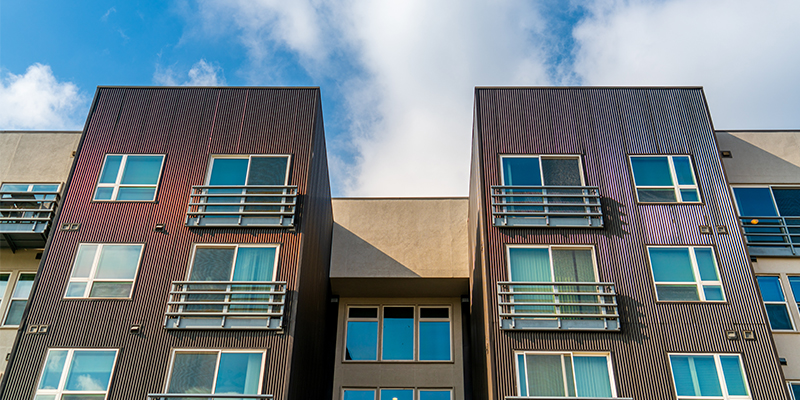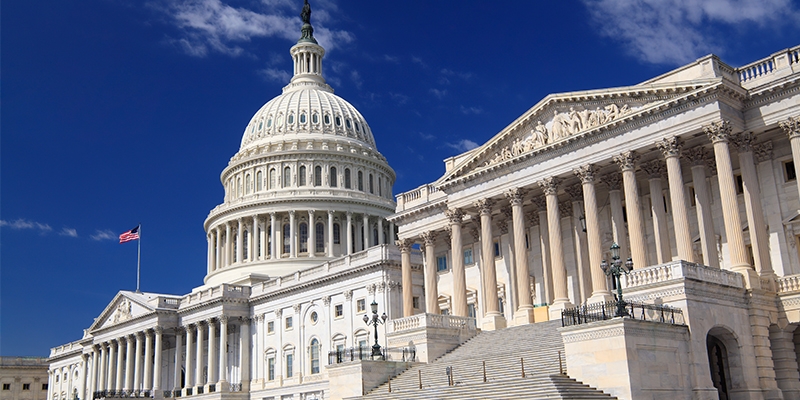As the new year begins, lawmakers will begin returning to their chambers to discuss and debate numerous pieces of legislation. Congress is currently focused on President Joe Biden’s Build Back Better initiative and voting rights legislation, but conventional wisdom suggest that passage of meaningful, nonpartisan legislation will remain a challenge during an election year. However, the national debate occurring within the Washington, D.C., beltway should not detract from the tax and policy discussions occurring inside state capitols. NAIOP chapters need to monitor these discussions and their potential impact on the commercial real estate industry.
Most states are experiencing revenue surpluses heading into the 2022 legislative session. Projected revenue shortfalls, caused by business restrictions placed on nonessential services, were not as severe as originally projected. The National Association of State Budget Officers (NASBO) recently released The Fiscal Survey of the States, Fall 2021, which reported general revenue collections for fiscal year 2021 were actually above original projections in 47 states. The collection of the sales tax on internet transactions and the $195.3 billion to states and the District of Columbia under the American Rescue Plan Act of 2021 helped to offset revenue losses in most states because of the pandemic-induced economic slowdown.
The higher revenue collections resulted in significant budgetary surpluses in many states, such as California’s $31 billion and Minnesota’s $7.7 billion. State lawmakers in those and other states will debate legislative measures to utilize these surpluses during their upcoming legislative session, which will include reducing state revenue collections and expanding state expenditures. Either way, these measures will include many areas of importance to the commercial real estate industry, such as:
- Reduce property and business taxes
- Increase government spending for infrastructure
- Expand economic incentives, tax credits and abatements
- Reduce state fees
- Provide additional local aid
- Incentivize environmental initiatives
- Increase state grants and loans
- Provide more efficient government programs and services, such as the permit approval process
- Improve public education
- Strengthen their state’s economic competitiveness in retaining and attracting private businesses
- Replenish “rainy day” funds
Budget surpluses will also provide opportunities for legislators to enact legislative and political priorities, particularly heading into the November election. NAIOP chapters can play a critical role with state lawmakers and must remain engaged in the budgetary legislative process to ensure that the interests of commercial real estate are taken into consideration during the budgetary debate. Legislative days at state capitols provide NAIOP members with important opportunities to educate lawmakers on the impact of their votes for commercial real estate and development.
NAIOP chapters will need to monitor the potential long-term implications of current revenue surpluses that are used to expand government services and programs. In an opinion piece for the USA Today Network, Assemblyman Robert Auth and Assemblywoman DeAnne Defuccio, who represent parts of New Jersey’s 39th Legislative District, raised concerns with the surplus and “spending spree” by New Jersey lawmakers last year that may eventually lead to tax increases. The authors noted that state lawmakers provided a small percentage of the $3 billion in property tax relief as part of the expected $10 billion surplus in last year’s budget. Some pundits may also say that 2021 state election in New Jersey may have played a role in some of the budgetary decisions. According to Ballotpedia, there are elections in 88 of the 99 state legislative chambers this November.
Revenue surpluses and election year politics do not necessarily mean that governors and state lawmakers will not seek additional revenue from commercial real estate and the private sector for through tax and fee increases. Legislative days at the state capitol may serve an important role for NAIOP members to advocate for balanced approaches towards state government and revenue surpluses, but they are not the only way to educate lawmakers. NAIOP chapters can also meet with legislators in their district offices and invite them to participate and, at times, speak at chapter events.
NAIOP members can make a difference by being engaged, developing and maintaining relationships, and establishing a trustworthy line of communication between state lawmakers and the commercial real estate industry. NAIOP Corporate will continue to support the chapters in developing and executing successful legislative strategies that impact policy outcomes and advances the interest of commercial real estate.








